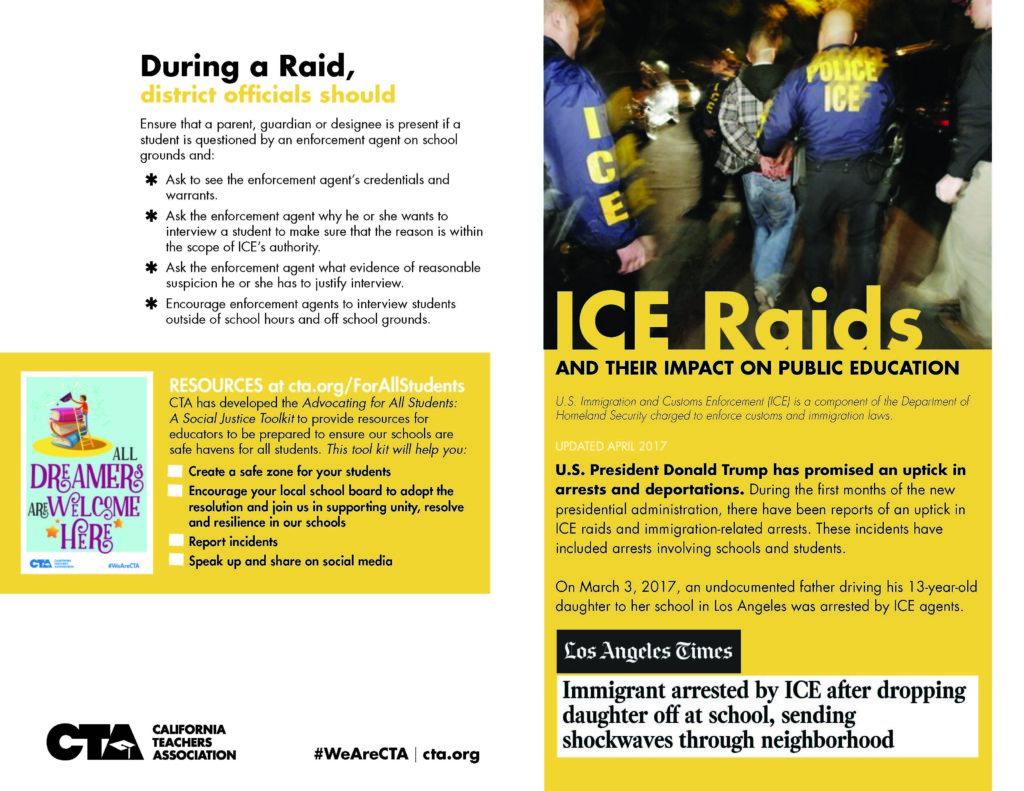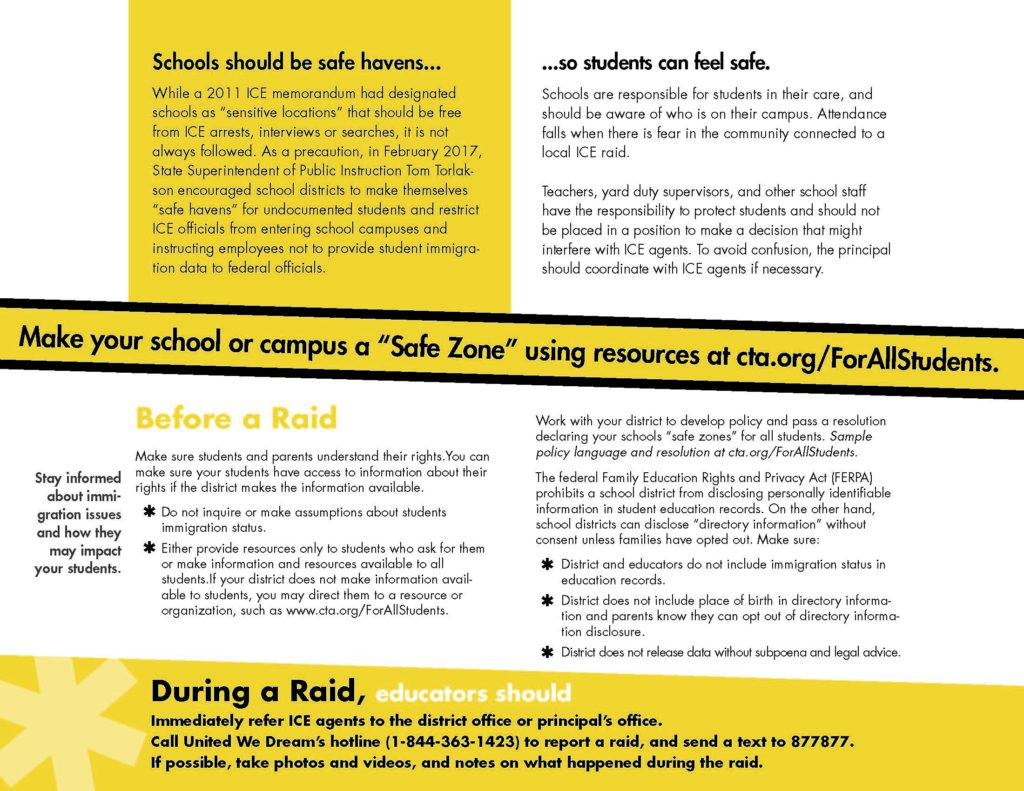Stepped-up activity by ICE enforcement agents are having an impact on immigrant and undocumented students and educators. Educators should become familiar with the following:
Students
Inform your students of their constitutional rights. The Immigrant Legal Resource Center website (ilrc.org/red-cards) offers downloadable, printable “Know Your Rights” cards in multiple languages, which students can show to an immigration agent. Students should know:
- Don’t open the door if an immigration agent knocks on the door.
- Don’t answer any questions from an immigration agent if they try to talk to you. You have the right to remain silent.
- Don’t sign anything without first speaking to a lawyer.
- If you are outside of your home, ask the agent if you are free to leave, and if they say yes, leave calmly.
Educators
Before an ICE raid:
- Make it clear to students that your classroom and school are safe havens for all students. Do not inquire or make assumptions about students’ immigration status.
- Either provide resources only to students who ask for them or make information and resources available to all students. If your district does not make information available to students, use the resources at cta.org/forallstudents (for educators as well).
During an ICE raid, educators should:
- Immediately refer ICE agents to the district office or principal’s office.
- Call United We Dream’s hotline (844-363-1423) to report a raid and send a text to 877877.
- If possible, take photos and videos, and notes on what happened during the raid.
District officials should:
- Ensure that a parent, guardian or designee is present if a student is questioned by an enforcement agent on school grounds.
- Ask to see the enforcement agent’s credentials and warrants and why he or she wants to interview a student, to make sure that the reason is within the scope of ICE’s authority.
- Ask the enforcement agent what evidence of reasonable suspicion he or she has to justify the interview.
- Encourage enforcement agents to interview students outside of school hours and off school grounds.
For more information, available in multiple languages for students and families, go to cta.org/iceraids.


Special Report: Teaching Through Trauma
This is part of our series that looks at how educators are handling students with trauma. Read more:
Stories
- Teaching Students with Trauma: Practices that work
- A Culture of Compassion: What trauma-sensitive schools look like
- Phoenix Rising: Healing after natural disasters
- Crisis in Our Classrooms: Frightened, anxious immigrant students try to focus on education
- How COVID-19 Impacts the Undocumented
- Returning to Children’s Community Charter School in Paradise
- No Such Thing as a Bad Kid: Youth-care expert Charles D. Appelstein
- Taking Care of You, Too: Educator self-care is critical
- In Their Own Words: Helping students tell what they’ve lived
Resources
- How to help students after disaster
- Restorative practices that aid in trauma recovery
- Trauma Toolkit for Educators
- Helping our immigrant & undocumented students
- Know your rights with ICE
- Educator self-care tip sheet
- Defining trauma
- Symptoms of trauma
- Guidance from UC San Francisco’s HEARTS
The Discussion 0 comments Post a Comment